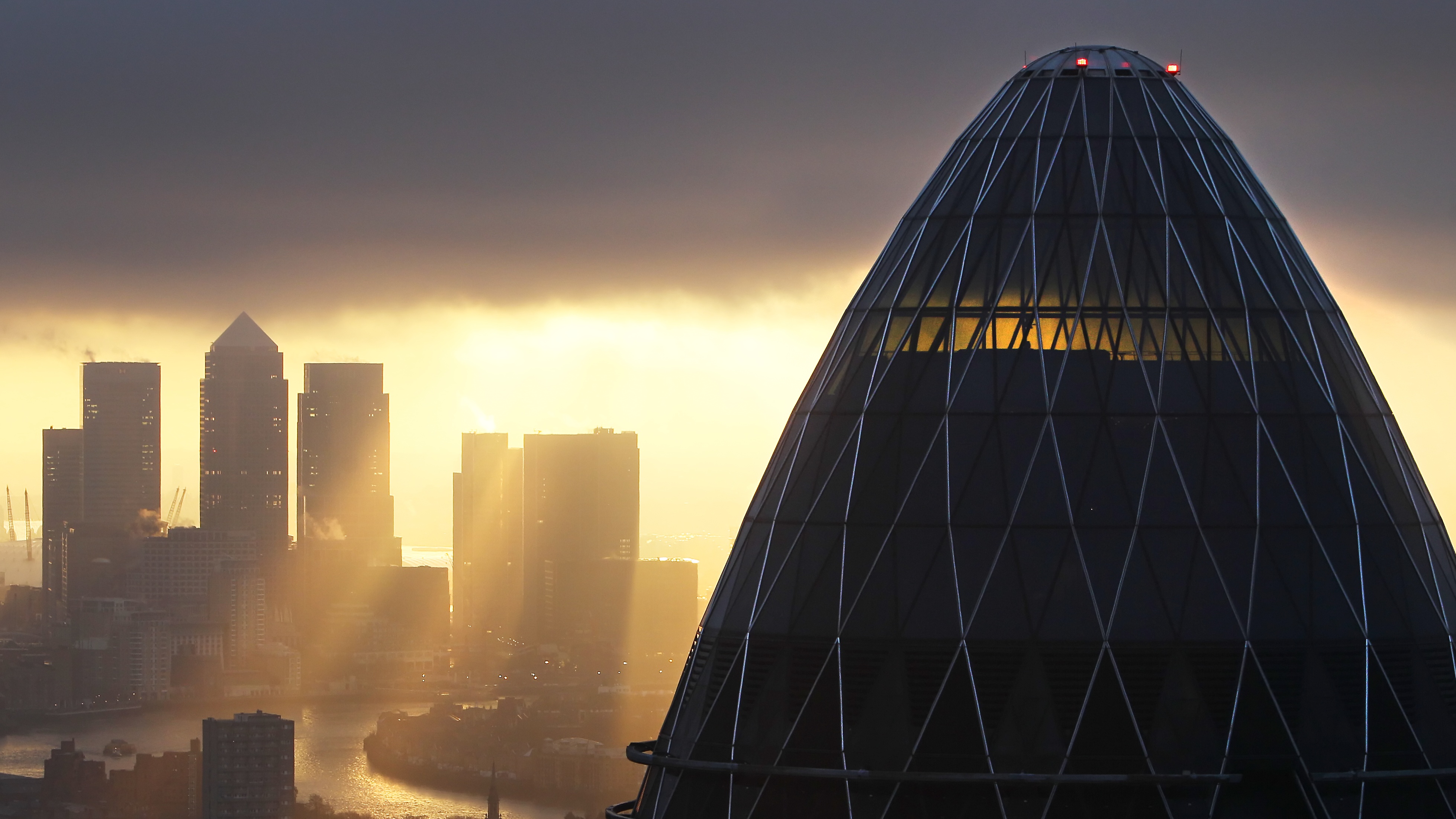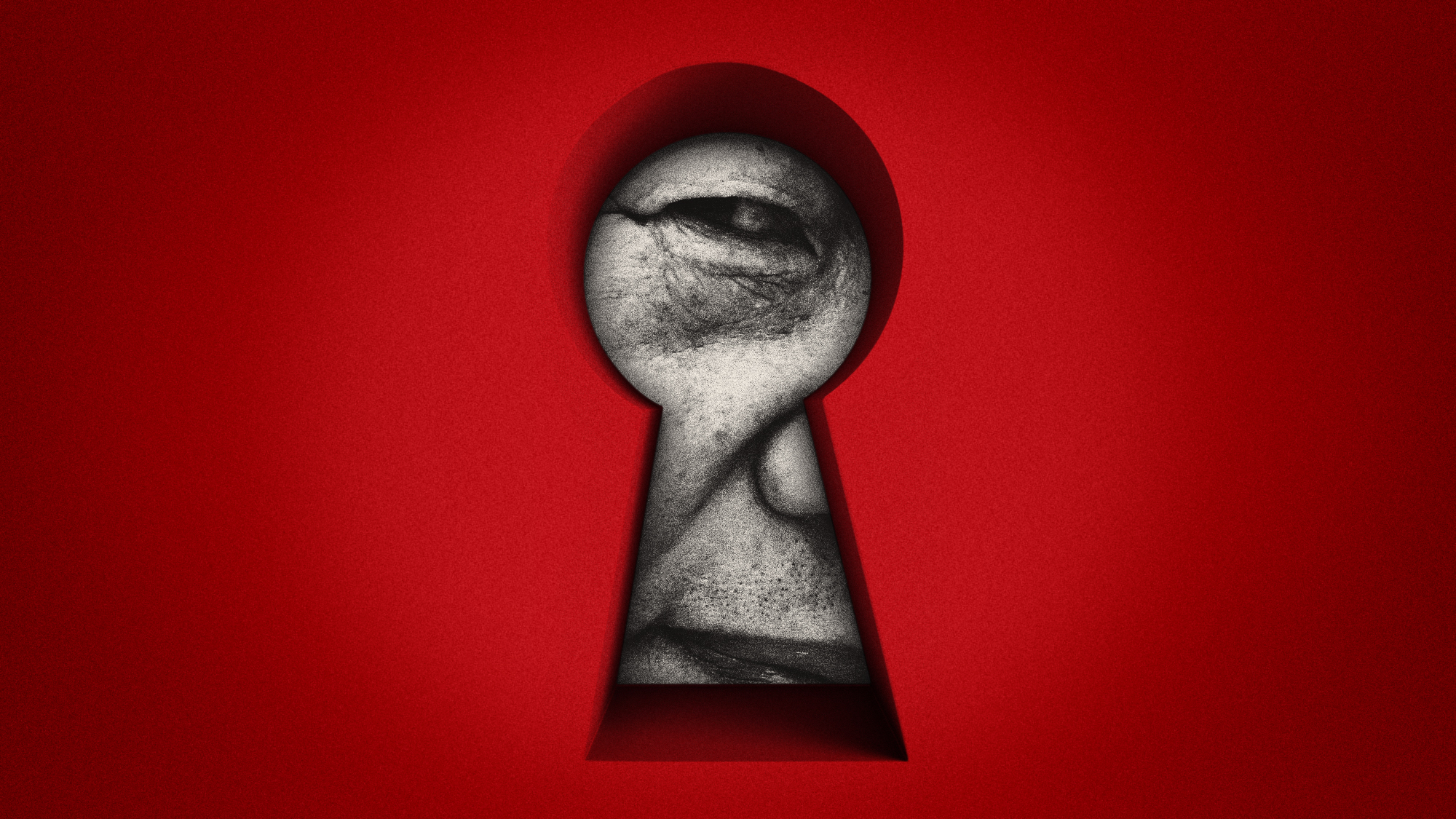How London became the city of choice for Russian ‘dirty money’
US says sanctions will be undermined by flow of suspect money into capital

A free daily email with the biggest news stories of the day – and the best features from TheWeek.com
You are now subscribed
Your newsletter sign-up was successful
US officials fear that imposing sanctions on Russia amid tensions with Ukraine will be impossible due to the UK’s refusal to stop illicit funds flowing into London.
Diplomatic sources told The Times that US State Department officials have repeatedly voiced “dismay and frustration” at successive government’s lack of willingness to clamp down on the arrival of suspect funds, especially in what they have termed “Londongrad”.
Joe Biden has been joined by a string of British ministers in his calls to slap a massive package of sanctions on Russia should it strike into Ukraine. But “the fear is that Russian money is so entrenched in London now that the opportunity to use it as leverage against Putin could be lost”, a source in Washington told the paper.
The Week
Escape your echo chamber. Get the facts behind the news, plus analysis from multiple perspectives.

Sign up for The Week's Free Newsletters
From our morning news briefing to a weekly Good News Newsletter, get the best of The Week delivered directly to your inbox.
From our morning news briefing to a weekly Good News Newsletter, get the best of The Week delivered directly to your inbox.
“Biden is talking about sanctioning Putin himself but that can only be symbolic. Putin doesn’t hold his money abroad, it is all in the kleptocrats’ names and a hell of a lot of it is sitting in houses in Knightsbridge and Belgravia right under your government’s noses.”
‘Welcome to Londongrad’
After the collapse of the Soviet Union, “a group of savvy (though not always savoury) business magnates found themselves in possession of enormous riches”, said Tatler.
Rather than stay in Russia, where their newfound wealth – and even their lives – were at risk, “they looked west, to the world’s financial capital – and London’s politicians welcomed them and their wallets with open arms”.
This willingness to overlook the origins of the new arrivals’ riches was part of the appeal for many Russians. The UK has simply “turned a blind eye” to Russian “dirty money” being laundered through London, according to a report released in 2018 by the Commons Foreign Affairs Committee.
A free daily email with the biggest news stories of the day – and the best features from TheWeek.com
In return, the UK financial sector became a “major beneficiary of the massive flight of Russian cash”, as Reuters reported at the time.
Many wealthy Russians were also drawn by “the benefits of a more stable country”, including “property values, high-quality private education and a renowned judicial system”, The Times reported.
Others came in search of social opportunities - and found them. Within a generation, a number of Russian families have become fixtures of the British social scene, added Tatler.
“Where the parents may have been seen as parvenus, the progeny are unambiguously accepted as mainstays of high society – they decorate the pages of Bystanders both British and Russian, they’re regulars at Henley, Ascot and Annabel’s,”.
Indeed, there are “so many rich, showy, notorious Russians [in London] that it has become a cliche”, said The Washington Post. “Moscow-on-the-Thames? Londongrad? Take your pick.”
Too late to change
While the true sum “invested by oligarchs in Britain is notoriously hard to track”, The Times said, the government has previously placed the figure at around £100bn a year. The anti-sleaze organisation Transparency International said that it has identified property worth £1bn bought with suspect funds from Russia.
And none of this takes into account the £2m the Conservatives are reported to have received “from donors with Russian links since Johnson became prime minister in 2019”.
“Campaigners have long warned that unless the fire hydrant of Russian dirty money flooding London were turned off it would become uncontrollable,” the paper reported.
And with sanctions against Russia now top of the agenda for the UK’s allies, successive governments may have left it “too late to untangle the web of Russian influence”.
-
 El Paso airspace closure tied to FAA-Pentagon standoff
El Paso airspace closure tied to FAA-Pentagon standoffSpeed Read The closure in the Texas border city stemmed from disagreements between the Federal Aviation Administration and Pentagon officials over drone-related tests
-
 Political cartoons for February 12
Political cartoons for February 12Cartoons Thursday's political cartoons include a Pam Bondi performance, Ghislaine Maxwell on tour, and ICE detention facilities
-
 Arcadia: Tom Stoppard’s ‘masterpiece’ makes a ‘triumphant’ return
Arcadia: Tom Stoppard’s ‘masterpiece’ makes a ‘triumphant’ returnThe Week Recommends Carrie Cracknell’s revival at the Old Vic ‘grips like a thriller’
-
 Is the Chinese embassy a national security risk?
Is the Chinese embassy a national security risk?Today’s Big Question Keir Starmer set to approve London super-complex, despite objections from MPs and security experts
-
 New START: the final US-Russia nuclear treaty about to expire
New START: the final US-Russia nuclear treaty about to expireThe Explainer The last agreement between Washington and Moscow expires within weeks
-
 What would a UK deployment to Ukraine look like?
What would a UK deployment to Ukraine look like?Today's Big Question Security agreement commits British and French forces in event of ceasefire
-
 Would Europe defend Greenland from US aggression?
Would Europe defend Greenland from US aggression?Today’s Big Question ‘Mildness’ of EU pushback against Trump provocation ‘illustrates the bind Europe finds itself in’
-
 Is conscription the answer to Europe’s security woes?
Is conscription the answer to Europe’s security woes?Today's Big Question How best to boost troop numbers to deal with Russian threat is ‘prompting fierce and soul-searching debates’
-
 Trump peace deal: an offer Zelenskyy can’t refuse?
Trump peace deal: an offer Zelenskyy can’t refuse?Today’s Big Question ‘Unpalatable’ US plan may strengthen embattled Ukrainian president at home
-
 Vladimir Putin’s ‘nuclear tsunami’ missile
Vladimir Putin’s ‘nuclear tsunami’ missileThe Explainer Russian president has boasted that there is no way to intercept the new weapon
-
 The Baltic ‘bog belt’ plan to protect Europe from Russia
The Baltic ‘bog belt’ plan to protect Europe from RussiaUnder the Radar Reviving lost wetland on Nato’s eastern flank would fuse ‘two European priorities that increasingly compete for attention and funding: defence and climate’